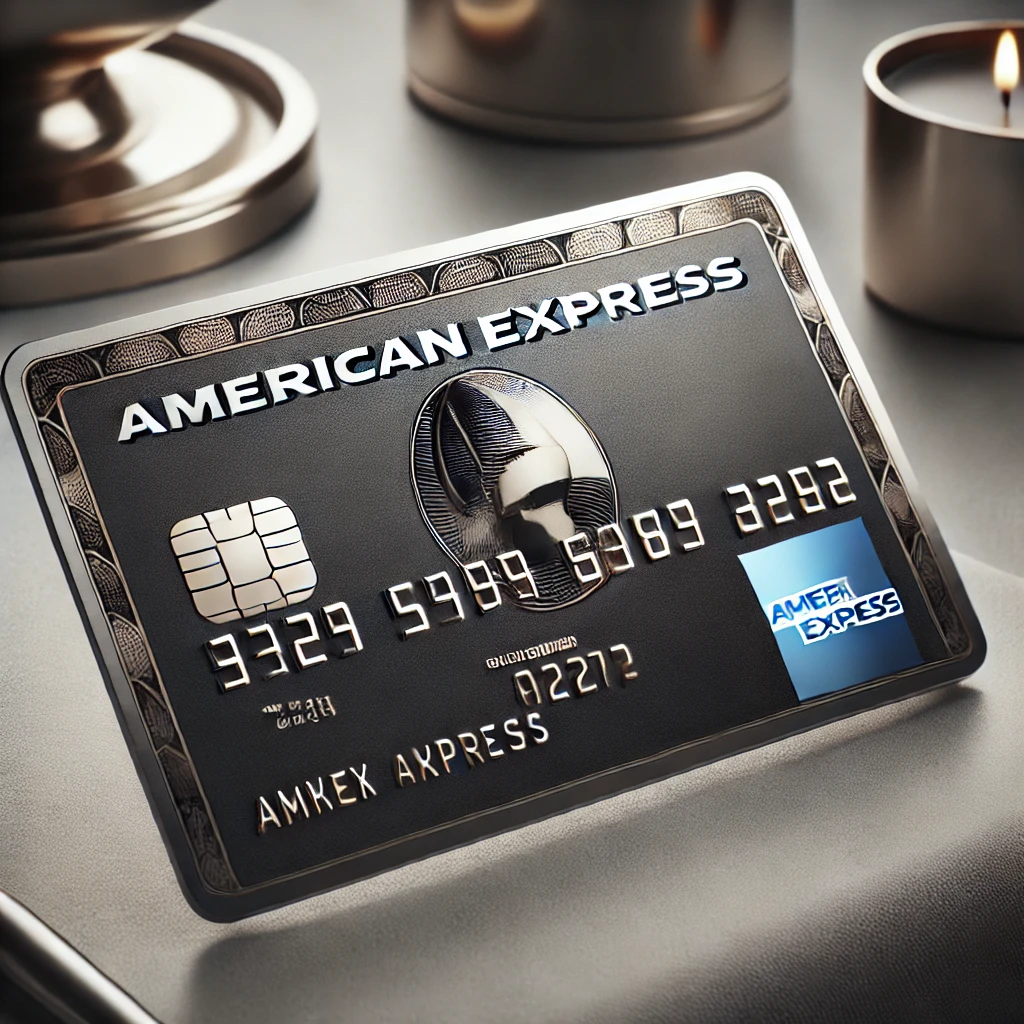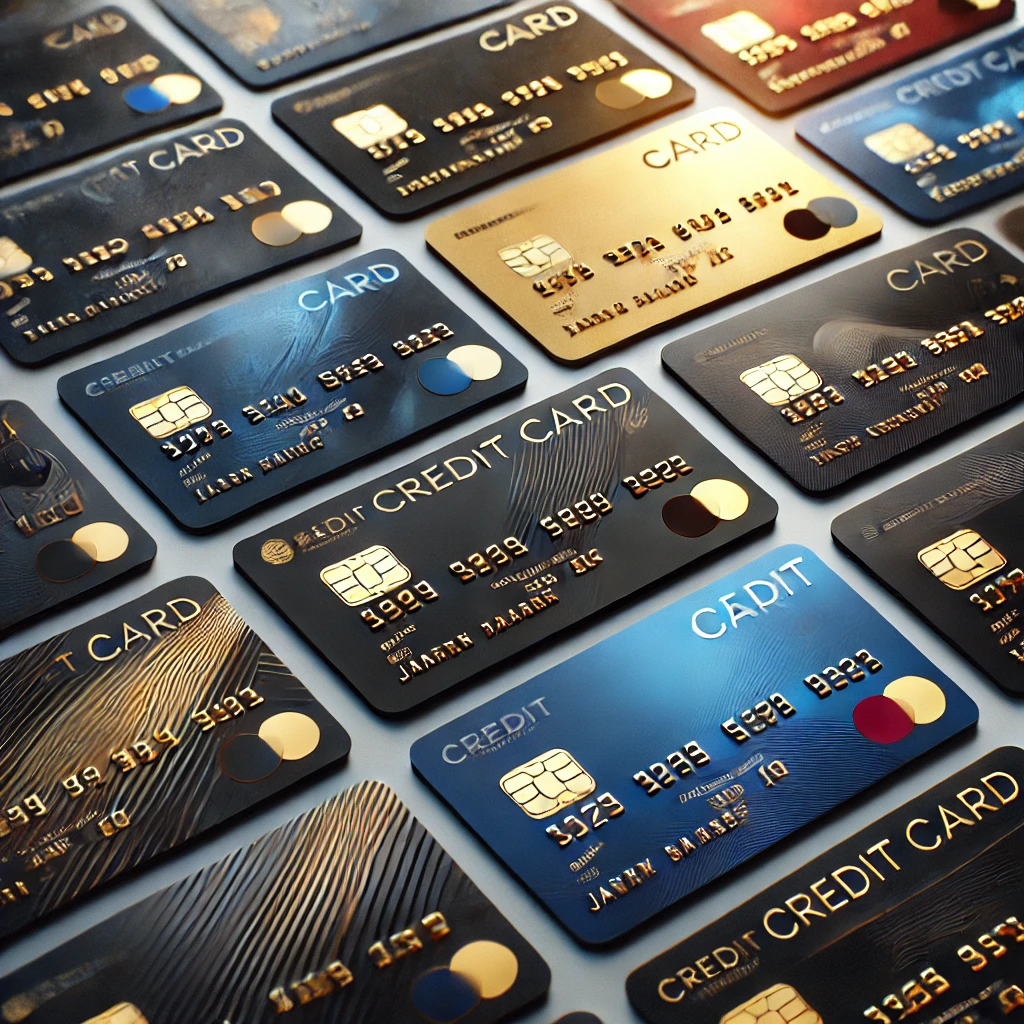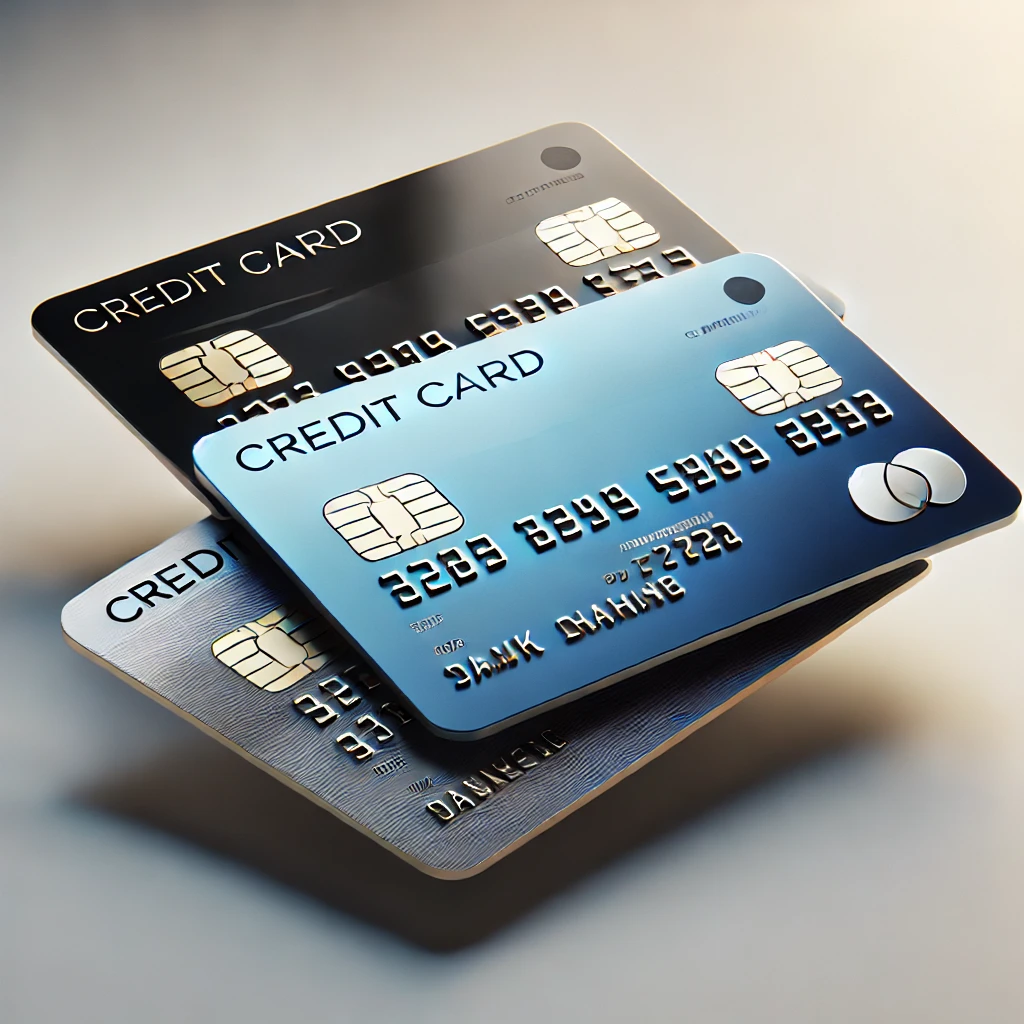Credit Cards: Your Comprehensive Guide to Mastering Financial Flexibility
Credit cards have become a crucial tool in modern financial management. From everyday purchases to building credit scores, they offer convenience and financial flexibility. However, to harness their potential effectively, it’s essential to understand their features, benefits, and potential pitfalls.
In this comprehensive guide, we will explore everything about credit cards, from their basics to advanced tips for maximizing their benefits. Whether you’re new to credit cards or a seasoned user, this article will provide valuable insights to help you make informed decisions.
Disclosure
This article may contain affiliate links, which means we may earn a commission if you make a purchase or sign up for a service through one of our links. This comes at no additional cost to you and helps support the maintenance and creation of valuable content on this website.
We only recommend products and services that we genuinely believe will bring value to our readers. Our opinions and recommendations are unbiased and based on thorough research and expertise. Thank you for supporting us!
Table of Contents
- What Are Credit Cards?
- Types of Credit Cards
- How Credit Cards Work
- Benefits of Using Credit Cards
- Drawbacks of Credit Cards
- How to Choose the Right Credit Card
- Tips for Responsible Credit Card Use
- Understanding Credit Card Rewards
- Credit Cards vs. Debit Cards
- Frequently Asked Questions About Credit Cards
- Conclusion
What Are Credit Cards?
A credit card is a financial tool issued by banks or financial institutions that allows cardholders to borrow money for purchases, bill payments, or cash withdrawals, up to a certain limit. Unlike debit cards, which draw funds directly from your bank account, credit cards provide a line of credit that you repay later, often with interest.
Types of Credit Cards
Credit cards come in various types to suit different needs. Below are the most common categories:
1. Rewards Credit Cards
- Earn points, cashback, or miles on every purchase.
- Ideal for frequent shoppers or travelers.
2. Balance Transfer Credit Cards
- Allow you to transfer high-interest debt to a card with a lower or 0% interest rate.
- Useful for consolidating debt.
3. Secured Credit Cards
- Require a cash deposit as collateral.
- Perfect for individuals building or repairing credit.
4. Student Credit Cards
- Tailored for college students with limited or no credit history.
- Often have lower credit limits and educational resources.
5. Business Credit Cards
- Designed for business expenses.
- Offer features like higher limits, employee cards, and expense tracking.
How Credit Cards Work
When you use a credit card, the issuer pays the merchant on your behalf. You are then responsible for repaying the issuer, either in full or through minimum monthly payments. Key elements include:
- Credit Limit: The maximum amount you can borrow.
- Billing Cycle: The monthly period during which transactions are tracked.
- Grace Period: The time you have to pay your balance in full before interest accrues.
- Interest Rate (APR): The cost of borrowing if you don’t pay your balance in full.
Benefits of Using Credit Cards
Credit cards offer numerous advantages when used wisely:
1. Convenience
- Accepted at millions of locations worldwide.
- Useful for online shopping and travel.
2. Rewards and Perks
- Earn cashback, points, or travel miles.
- Access exclusive benefits like concierge services and lounge access.
3. Build Credit History
- Regular use and on-time payments boost your credit score.
- Helps in securing loans and better interest rates in the future.
4. Security
- Fraud protection and zero-liability policies.
- Easier dispute resolution for unauthorized charges.
5. Emergency Fund
- Acts as a financial backup for unexpected expenses.
Drawbacks of Credit Cards
While credit cards are powerful tools, they can lead to challenges if misused:
1. High-Interest Rates
- Carrying a balance results in costly interest charges.
2. Debt Accumulation
- Overuse can lead to unmanageable debt.
3. Fees
- Late payment fees, annual fees, and foreign transaction fees can add up.
4. Impact on Credit Score
- Missing payments or maxing out your card can lower your credit score.
How to Choose the Right Credit Card
Selecting the right credit card depends on your financial habits and goals. Here’s how to decide:
1. Assess Your Needs
- Are you looking for rewards, a low-interest rate, or credit-building opportunities?
2. Compare Interest Rates
- Look for cards with competitive APRs, especially if you plan to carry a balance.
3. Evaluate Fees
- Check for annual fees, foreign transaction fees, and penalty charges.
4. Consider Rewards Programs
- Choose a rewards structure that aligns with your spending habits (e.g., cashback for groceries, miles for travel).
Tips for Responsible Credit Card Use
- Pay Your Balance in Full: Avoid interest charges by paying off your balance monthly.
- Set Spending Limits: Stick to a budget to prevent overspending.
- Monitor Your Statements: Regularly review transactions for errors or unauthorized charges.
- Avoid Cash Advances: These often come with high fees and immediate interest charges.
- Track Your Credit Score: Use free tools to monitor your credit health.
Understanding Credit Card Rewards
Rewards are one of the most enticing aspects of credit cards. Here’s a breakdown:
1. Cashback
- Earn a percentage of your spending as cash.
- Best for everyday purchases.
2. Points
- Accumulate points for purchases and redeem them for travel, gift cards, or merchandise.
3. Miles
- Ideal for travelers, earning miles that can be redeemed for flights or hotel stays.
Tip: Always read the fine print on redemption rules and expiration dates.

Credit Cards vs. Debit Cards
Understanding the differences can help you decide which to use:
| Feature | Credit Cards | Debit Cards |
|---|---|---|
| Funds Source | Borrowed from issuer | Withdrawn from your bank account |
| Credit Score Impact | Affects credit score | Does not affect credit score |
| Rewards | Offers cashback, points, or miles | Limited or no rewards |
| Fees | May include interest and annual fees | Minimal or no fees |
Frequently Asked Questions About Credit Cards
1. How many credit cards should I have?
The ideal number depends on your financial management skills. Most experts recommend having one or two cards to build credit responsibly.
2. What is a good credit score for getting a credit card?
A score of 670 or above is considered good, but there are options available for individuals with lower scores.
3. Can I use credit cards for international travel?
Yes, but check for foreign transaction fees. Some cards waive these fees and offer travel-related perks.
4. How can I avoid interest charges?
Pay your balance in full each month during the grace period.
5. Are credit card rewards taxable?
In most cases, rewards like cashback or points are not taxable as long as they are tied to spending.
Disclosure
This article may contain affiliate links, which means we may earn a commission if you make a purchase or sign up for a service through one of our links. This comes at no additional cost to you and helps support the maintenance and creation of valuable content on this website.
We only recommend products and services that we genuinely believe will bring value to our readers. Our opinions and recommendations are unbiased and based on thorough research and expertise. Thank you for supporting us!
Credit Cards
Credit cards are powerful financial tools when used responsibly. They provide convenience, build credit, and offer valuable rewards. However, understanding their workings, benefits, and potential pitfalls is essential to maximizing their advantages while avoiding debt traps.
Whether you’re choosing your first credit card or optimizing rewards on existing ones, this guide has equipped you with the knowledge to make informed decisions. Explore different options, stay disciplined, and leverage credit cards to enhance your financial health.
Remember, responsible use is key. Start building your credit and financial flexibility today!
Advanced Credit Card Strategies
If you’re already a seasoned credit card user, there are advanced strategies you can employ to extract maximum value from your cards while minimizing costs.
1. Leverage Multiple Cards Strategically
- Use different cards for specific categories (e.g., one for travel rewards, another for groceries).
- Match your spending habits with card benefits to optimize rewards.
2. Maximize Welcome Bonuses
- Many credit cards offer lucrative sign-up bonuses for meeting a minimum spending requirement within the first few months.
- Plan significant purchases around these periods to hit the threshold without overspending.
3. Optimize Balance Transfers
- Transfer high-interest debt to a card with a 0% introductory APR on balance transfers.
- Ensure you pay off the balance before the promotional period ends to avoid interest charges.
4. Stack Rewards
- Combine your credit card rewards with cashback apps, online portals, or retailer loyalty programs for additional savings.
5. Set Alerts and Automation
- Use mobile apps to set alerts for payment due dates and spending limits.
- Automate payments to avoid late fees and keep your credit score intact.
How Credit Cards Impact Your Credit Score
Your credit card usage plays a significant role in determining your credit score. Here are the key factors:
1. Payment History (35%)
- Paying your bill on time is the most critical factor affecting your credit score.
2. Credit Utilization (30%)
- This is the percentage of your credit limit that you’re using. Aim to keep it below 30%.
3. Credit History Length (15%)
- Older accounts positively impact your credit score, so keep older cards active.
4. New Credit Inquiries (10%)
- Frequent applications for new cards can temporarily lower your score.
5. Credit Mix (10%)
- Having a variety of credit types (e.g., cards, loans) is beneficial.
Pro Tip: Regularly check your credit report to ensure accuracy and dispute any errors.

Mistakes to Avoid with Credit Cards
While credit cards are useful tools, common mistakes can lead to financial trouble. Avoid these pitfalls:
- Paying Only the Minimum Payment
- Leads to long-term debt and higher interest costs.
- Missing Payments
- Incurs late fees and damages your credit score.
- Maxing Out Your Credit Limit
- Negatively impacts credit utilization and may result in over-limit fees.
- Ignoring Reward Terms
- Unused or expired rewards can mean lost value.
- Applying for Too Many Cards at Once
- Results in multiple hard inquiries, which can lower your credit score.
Unique Use Cases for Credit Cards
Credit cards aren’t just for everyday purchases. Here are some lesser-known ways to use them effectively:
1. Travel Benefits
- Many cards offer free travel insurance, baggage protection, and lounge access.
2. Building Credit for Students
- A student credit card can help young adults establish credit early with low risks.
3. Emergency Expenses
- Credit cards can act as a safety net for unexpected costs.
4. Renting Cars
- Many cards offer collision damage waiver insurance, saving you money on rental insurance.
5. Subscription Management
- Use one card exclusively for subscriptions to simplify tracking and avoid missed payments.
The Future of Credit Cards
Credit cards are constantly evolving to meet the needs of modern consumers. Here’s what the future holds:
1. Digital Wallet Integration
- Most credit cards now integrate seamlessly with digital wallets like Apple Pay, Google Pay, and Samsung Pay for secure and contactless payments.
2. Dynamic Card Numbers
- Some issuers are introducing virtual credit card numbers that change for every transaction, enhancing security.
3. AI-Powered Spending Insights
- Advanced credit card apps provide personalized insights and recommendations based on your spending habits.
4. Sustainability Initiatives
- Eco-friendly credit cards made from recycled materials are gaining popularity.
5. Cryptocurrency Rewards
- Cards offering crypto rewards instead of traditional cashback or points are emerging as a new trend.
Recommended Credit Cards for Different Needs
1. Best for Cashback: Citi® Double Cash Card
- Earn 2% cashback on every purchase (1% when you buy, 1% when you pay).
2. Best for Travel: Chase Sapphire Preferred® Card
- Earn bonus points on travel and dining, plus access to exclusive travel perks.
3. Best for Students: Discover it® Student Cash Back
- Earn cashback with no annual fee and a bonus for good grades.
4. Best for Balance Transfers: U.S. Bank Visa® Platinum Card
- Offers 0% APR for up to 18 billing cycles on balance transfers.
5. Best for Building Credit: Capital One Platinum Credit Card
- Designed for individuals with limited or fair credit history.
Internal Links to Build Topical Authority
- Budgeting Basics: Learn how to create a budget that complements your credit card usage. Read More
- Debt Management Tips: Struggling with credit card debt? Discover effective strategies to regain control. Explore Now
- Personal Finance Tools: Explore the best apps and software for managing your credit cards and finances. Learn More
- Understanding Credit Scores: Dive into the details of credit scores and how credit cards influence them. Discover Here
Conclusion
Credit cards are more than just a payment tool—they’re a gateway to financial flexibility, rewards, and opportunities. By understanding their mechanics, benefits, and potential pitfalls, you can leverage credit cards to enhance your financial health and achieve your goals.
Whether you’re a first-time user or a seasoned cardholder, the tips and insights shared in this article will help you make smarter decisions and unlock the full potential of credit cards. Start today, and take control of your financial future!
FAQs About Credit Cards
1. What is the difference between a secured and unsecured credit card?
A secured credit card requires a refundable deposit as collateral, which acts as your credit limit. It’s ideal for individuals with no credit history or poor credit. An unsecured credit card, on the other hand, doesn’t require a deposit and is the most common type of credit card.
2. How does a credit card impact my credit score?
Credit cards influence your credit score through factors like payment history, credit utilization, length of credit history, new credit inquiries, and the types of credit used. Timely payments and keeping utilization below 30% positively affect your score.
3. What happens if I miss a payment?
Missing a payment can result in:
- Late fees.
- A penalty APR (higher interest rate).
- Negative impact on your credit score, especially if the payment is 30+ days overdue.
4. What is a credit card’s grace period?
The grace period is the time between the end of your billing cycle and your payment due date. During this period, you won’t incur interest on your purchases if you pay your balance in full. Grace periods are usually around 21–25 days.
5. Can I increase my credit limit?
Yes, you can request a credit limit increase from your card issuer. They typically evaluate factors like your payment history, income, and credit score before approval. Regular, responsible use can also lead to automatic increases.
6. Are credit card rewards taxable?
In most cases, credit card rewards like cashback, points, or miles earned through spending are not taxable. However, rewards earned without spending, such as bonuses from opening an account, may be considered taxable income.
7. How do foreign transaction fees work?
Foreign transaction fees are charges (typically 1–3%) added to purchases made outside your home country. Some credit cards waive this fee, making them ideal for frequent travelers.
8. What’s the difference between a credit card’s APR and interest rate?
The APR (Annual Percentage Rate) includes the interest rate and any additional fees or costs associated with the card, providing a more comprehensive view of borrowing costs. The interest rate only refers to the cost of borrowing money.
9. What is a balance transfer, and how does it work?
A balance transfer involves moving debt from one credit card to another with a lower interest rate, often through a special introductory APR. This can save money on interest if the balance is paid off during the promotional period.
10. Can I cancel a credit card, and will it affect my credit score?
You can cancel a credit card, but it may impact your credit score. Closing a card can:
- Shorten your average credit history length.
- Increase your credit utilization if you carry balances on other cards.
- Reduce your overall available credit.
Consider alternatives, like downgrading to a no-fee card, before canceling.
11. How can I avoid credit card fraud?
- Use secure websites for online shopping.
- Enable transaction alerts.
- Avoid sharing card details via email or phone.
- Regularly review statements for unauthorized charges.
- Use virtual credit cards for added security.
12. Should I use a credit card to pay bills?
Paying bills with a credit card can be convenient and earn rewards, but only if you pay the balance in full monthly to avoid interest charges. Ensure your card issuer allows such transactions without additional fees.
Advanced Topics for In-Depth Knowledge
Understanding Credit Card APR
The APR (Annual Percentage Rate) is a critical aspect of credit cards. It represents the yearly cost of borrowing if you don’t pay your balance in full. Key types include:
- Purchase APR: Applies to purchases.
- Balance Transfer APR: Applies to transferred balances.
- Cash Advance APR: Usually higher than purchase APR and begins accruing interest immediately.
Tip: Look for cards with low or introductory APRs if you plan to carry a balance.
Hidden Credit Card Fees to Watch Out For
- Foreign Transaction Fees: Typically 1–3% for international purchases.
- Over-Limit Fees: Charged if you exceed your credit limit.
- Cash Advance Fees: A fee for withdrawing cash, often 3–5%.
- Late Payment Fees: Imposed for missing due dates.
- Annual Fees: Common on premium cards but may offer perks that outweigh the cost.
Pro Tip: Read the card’s terms and conditions to understand all potential fees.
How Credit Card Interest Is Calculated
Interest is usually calculated using the average daily balance method:
- Add up your daily balances for the billing period.
- Divide by the number of days in the period to find the average daily balance.
- Multiply by the daily interest rate (APR divided by 365).
Example:
- Balance: $1,000
- APR: 18%
- Daily Interest Rate: 0.049% (18% ÷ 365)
- Interest for one day: $1,000 × 0.049% = $0.49
Over a month, these small amounts can add up significantly.
Building Credit with a Credit Card
If you’re new to credit cards, follow these steps to build credit responsibly:
- Start Small: Begin with a secured credit card or a card for beginners.
- Pay On Time: Even a single late payment can damage your credit.
- Keep Balances Low: Aim for a utilization rate below 30%.
- Monitor Your Credit Report: Check for inaccuracies and dispute them.
Tip: Use free tools like Credit Karma or Experian to track your credit score.

Credit cards are versatile financial tools that can simplify your life, build credit, and unlock valuable rewards when used responsibly. By understanding their nuances—from types and benefits to fees and advanced strategies—you can make the most of your credit cards while avoiding common pitfalls.
With the right credit card, sound financial habits, and the insights from this guide, you’re well on your way to mastering financial flexibility and achieving your financial goals. Whether you’re just starting out or looking to optimize your existing cards, there’s no better time to take control of your credit card journey than now.
15 top credit cards for 2024-2025
Selecting the right credit card can significantly enhance your financial strategy, offering benefits like rewards, cash back, and travel perks. Here are 15 top credit cards for 2024-2025, each catering to different financial needs and lifestyles:
- Wells Fargo Active Cash® Card
- Best For: Flat-rate cash rewards.
- Rewards: Unlimited 2% cash rewards on purchases.
- Annual Fee: $0.
- Additional Info: Recognized for its straightforward cash-back program, making it ideal for everyday spending. CreditCards.com
- Discover it® Cash Back
- Best For: Category variety.
- Rewards: 5% cash back on rotating quarterly categories (activation required) on up to $1,500 per quarter, then 1%.
- Annual Fee: $0.
- Additional Info: Offers Cashback Match™, matching all cash back earned at the end of the first year. CreditCards.com
- Chase Sapphire Preferred® Card
- Best For: Travel value.
- Rewards: 5X points on travel booked through Chase Travel, 3X on dining, and 2X on other travel purchases.
- Annual Fee: $95.
- Additional Info: Points are worth 25% more when redeemed for travel through Chase Ultimate Rewards®. CreditCards.com
- Capital One Savor Cash Rewards Credit Card
- Best For: Food and entertainment.
- Rewards: Unlimited 3% cash back on dining, entertainment, select streaming services, and grocery store purchases.
- Annual Fee: $0.
- Additional Info: Ideal for those who frequently dine out or enjoy entertainment activities. CreditCards.com
- Blue Cash Everyday® Card from American Express
- Best For: Household shopping.
- Rewards: 3% cash back at U.S. supermarkets, U.S. gas stations, and U.S. online retail purchases (on up to $6,000 per year in each category), then 1%.
- Annual Fee: $0.
- Additional Info: Great for families with significant grocery and gas expenses. CreditCards.com
- Capital One Quicksilver Cash Rewards Credit Card
- Best For: Starter rewards.
- Rewards: Unlimited 1.5% cash back on every purchase.
- Annual Fee: $0.
- Additional Info: A solid choice for those new to rewards credit cards. CreditCards.com
- Capital One Venture X Rewards Credit Card
- Best For: Travel perks.
- Rewards: 2 miles per dollar on every purchase; 10 miles per dollar on hotels and rental cars booked through Capital One Travel.
- Annual Fee: $395.
- Additional Info: Offers premium travel benefits, including lounge access and travel credits. CreditCards.com
- Citi Custom Cash® Card
- Best For: Second rewards card.
- Rewards: 5% cash back on purchases in your top eligible spend category each billing cycle, up to the first $500 spent, then 1%.
- Annual Fee: $0.
- Additional Info: Automatically adapts to your spending habits. CreditCards.com
- Blue Cash Preferred® Card from American Express
- Best For: Groceries.
- Rewards: 6% cash back at U.S. supermarkets (on up to $6,000 per year), then 1%; 3% at U.S. gas stations.
- Annual Fee: $95.
- Additional Info: Maximizes rewards on common household expenses. CreditCards.com
- The Platinum Card® from American Express
- Best For: Luxury travel.
- Rewards: 5X Membership Rewards® Points on flights booked directly with airlines or with American Express Travel.
- Annual Fee: $695.
- Additional Info: Provides extensive travel perks, including lounge access and concierge services. CreditCards.com
- American Express® Gold Card
- Best For: Foodies.
- Rewards: 4X Membership Rewards® Points at restaurants, including takeout and delivery.
- Annual Fee: $250.
- Additional Info: Offers high rewards rates on dining and supermarkets. CreditCards.com
- The American Express Blue Business Cash™ Card
- Best For: Business expenses.
- Rewards: 2% cash back on all eligible purchases on up to $50,000 per calendar year, then 1%.
- Annual Fee: $0.
- Additional Info: Tailored for small business owners seeking straightforward cash back. CreditCards.com
- Discover it® Student Cash Back
- Best For: Students.
- Rewards: 5% cash back on rotating categories (activation required) on up to $1,500 per quarter, then 1%.
- Annual Fee: $0.
- Additional Info: Helps students build credit while earning rewards. CreditCards.com
- Capital One Platinum Secured Credit Card
- Best For: Building credit.
- Rewards: N/A.
- Annual Fee: $0.
- Additional Info: Requires a refundable security deposit; reports to all three credit bureaus. CreditCards.com
- Chase Freedom Unlimited®
- Best For: All-around cash back.
- Rewards: 5% cash back on travel purchased through Chase Travel; 3% on dining and drugstore purchases; 1.5% on all other purchases.
- Annual Fee: $0.
- Additional Info: Versatile rewards structure suitable for various spending habits.
Final Thoughts
Credit cards are much more than just a payment tool—they are powerful instruments for building financial freedom, earning valuable rewards, and simplifying your financial life. However, the true potential of credit cards can only be unlocked through informed and responsible usage.
From selecting the perfect card that aligns with your lifestyle to understanding the nuances of interest rates, fees, and rewards, every decision you make has a ripple effect on your financial well-being. The right credit card can elevate your everyday spending, provide security during emergencies, and open doors to opportunities you may never have considered.
But remember, credit cards are not one-size-fits-all. Your financial goals, habits, and priorities should guide your choices. Whether you’re a student starting your financial journey, a business owner managing expenses, or a seasoned traveler seeking exclusive perks, there’s a card designed to meet your unique needs.
As you navigate the vast world of credit cards, let this guide be your compass. Take time to research, compare options, and make informed decisions. By doing so, you’ll not only harness the benefits of credit cards but also build a foundation for long-term financial health and stability.
Empower yourself with knowledge, use credit wisely, and let your financial journey flourish. Remember, the path to financial success starts with small, informed steps—and the right credit card can be one of them.
Disclosure
This article may contain affiliate links, which means we may earn a commission if you make a purchase or sign up for a service through one of our links. This comes at no additional cost to you and helps support the maintenance and creation of valuable content on this website.
We only recommend products and services that we genuinely believe will bring value to our readers. Our opinions and recommendations are unbiased and based on thorough research and expertise. Thank you for supporting us!



